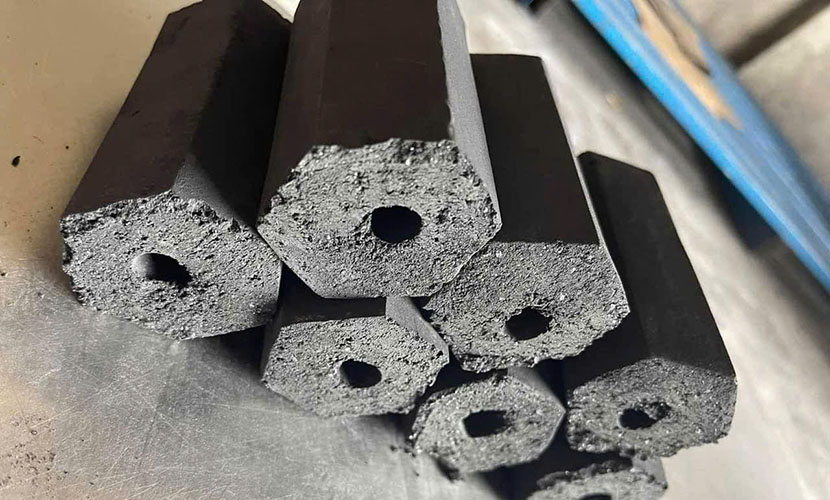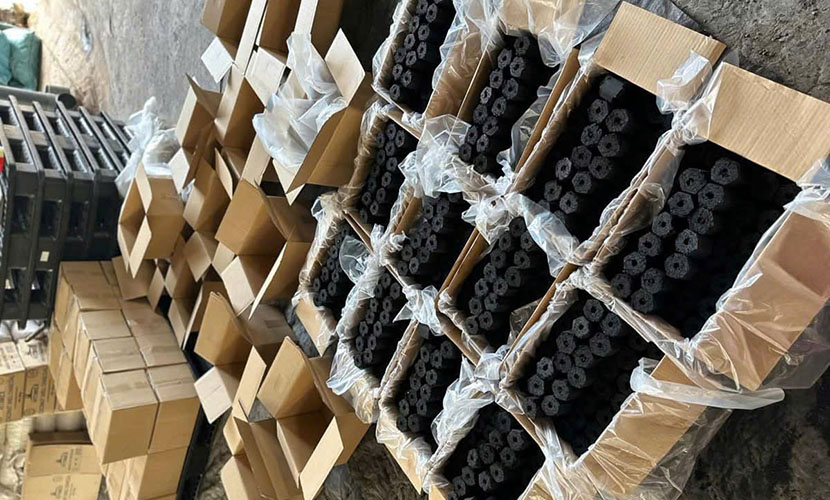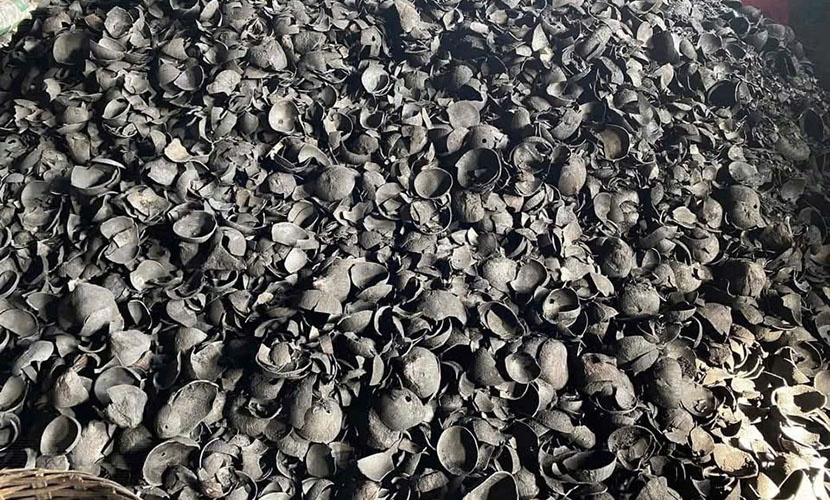
Ms. Le Hien is a founder of the smokeless charcoal project in Vietnam. She is selling Vietnamese coconut charcoal to many barbecue restaurants in Vietnam, as well as on Lazada and Alibaba. Hien has now stopped outsourcing production to Hong Kong and brought a branded Vietnamese product to the global market.
She shared “Smokeless charcoal came about when I was researching for a foreign partner to solve the smoke problem with regular charcoal. Through my research, I found that the smoke comes from poorly treated raw materials. After digging deeper, I realized that smokeless charcoal is a good product with strong demand both domestically and internationally”.

Vietnamese coconut shell briquette charcoal
“On top of that, it is a sustainable renewable energy source, since it is made from agricultural waste like coconut shells. In the future, I will also explore using other types of Vietnamese coconut charcoal to develop this product,” added Le Hien, founder of the R2D smokeless charcoal project.
Ms. Le Hien, who was born in 1984 and trained as a food technology engineer. Previously, she had ventured into businesses involving coffee and tapioca starch, but they failed. She was driven by concerns over the waste of abundant agricultural by-products.
Ms. Hien decided to produce smokeless charcoal products. She made this decision after understanding the root causes of smoke and the environmental and food safety issues posed by traditional charcoal.
Grilled food is popular among many people. Some use firewood, others use gas grills, but both have their downsides. Traditional charcoal causes environmental pollution, shoots ash into food, and sparks that can injure users. Gas grills lack the distinctive flavor of flame-grilled meat.
“Smoke and odor come from the raw materials. If you treat the materials properly, there’s no smell or smoke. In Ben Tre, there’s about 9,000 tons of coconut shells annually, mostly used for handicrafts. But the majority are just burned to make cheap coconut charcoal for export to China. Instead of fully converting the shells into carbon, partial burning leads to smoky charcoal,” Hien explained.
After experimenting and researching, Hien managed to develop a new product. It produces no smoke, no odor, no sparks, and uses no adhesives.

Carton boxes of Vietnamese coconut shell briquette charcoal
Ms. Hien sources her raw materials from coconut shredding shops. Also, she collects them from coconut candy makers and coconut oil producers in Ho Chi Minh City. “The coconut shells must be old and dry to provide high heat and produce less ash,” she said.
Through her research, Hien discovered that in Ho Chi Minh City alone, there are 229 large barbecue restaurants. These restaurants consume around 150 kg of charcoal per day, that is roughly 1,030 tons per month.
Households consume around 100 tons of charcoal per month. Postpartum mothers, who traditionally use charcoal for heating, consume about 80 tons monthly. Both domestic and international markets are huge, aligned with current trends and environmentally friendly practices.
This realization gave Hien even more motivation. In the beginning, she handled everything herself. Now, her company has four office staff and four factory workers. It also operates three outsourced production units and a manufacturing plant in Tay Ninh. R2D currently produces about 2.5 tons of charcoal per day.
The company’s products are now sold to many BBQ restaurants in Ho Chi Minh City and health-conscious food stores like Organica. They are also available on online platforms such as Lazada and Alibaba.

Vietnamese coconut shell charcoal
“Sales to restaurant chains account for the largest share. We also have individual customers including distributors and gas stove retailers. Our product doesn’t compete with gas stoves — smokeless charcoal only competes with traditional charcoal,” said the entrepreneur from Quang Tri.
The market price for traditional charcoal is around 15,000 VND/kg. Smokeless charcoal is about 20% more efficient in use and sells for around 18,000 VND/kg. It’s environmentally friendly, so Hien believes R2D’s product is competitive.
Hien has also embraced e-commerce by reaching out to international partners through Alibaba. “We are currently negotiating with a U.S. partner to export R2D-branded products. These are proudly made in Vietnam, no longer just raw exports,” Hien shared with a smile.
She sees e-commerce as a strategic step to bring her product to consumers. First, she studied the market. Then she realized that selling on Alibaba could help her reach international customers.
“I want to see the requirements for products in the U.S. and Europe. I also want to make sure our products meet their standards so we can enter those markets.” Then I will bring that same international-standard product back to the Vietnamese market,” the founder added.
Vietnamese source: https://cafef.vn/lam-than-gao-dua-khong-khoi-co-gai-quang-tri-bo-gia-cong-xuat-tho-sang-hong-kong-de-xay-thuong-hieu-viet-quyet-tam-xuat-ngoai-20171101104841097.chn
